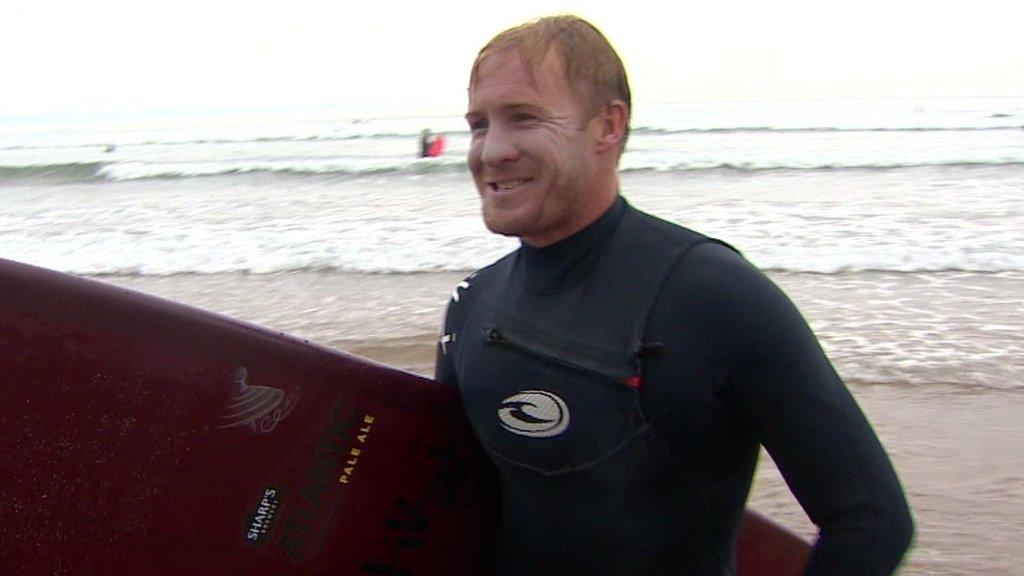UK surfer Laura Crane in class of her own at big wave spot Nazare
- Published
Laura Crane gets towed into a monster wave at Nazare
Laura Crane, 29, from north Devon is the first British woman to surf the 60ft waves of Nazare in Portugal, and it has been quite a journey.
On the way she had an eating disorder, sepsis and self-doubt.
Here she charts her return to the sport she loves.
Life was a "dream" for Laura Crane at the age of 12, says the surfer from Croyde in north Devon.
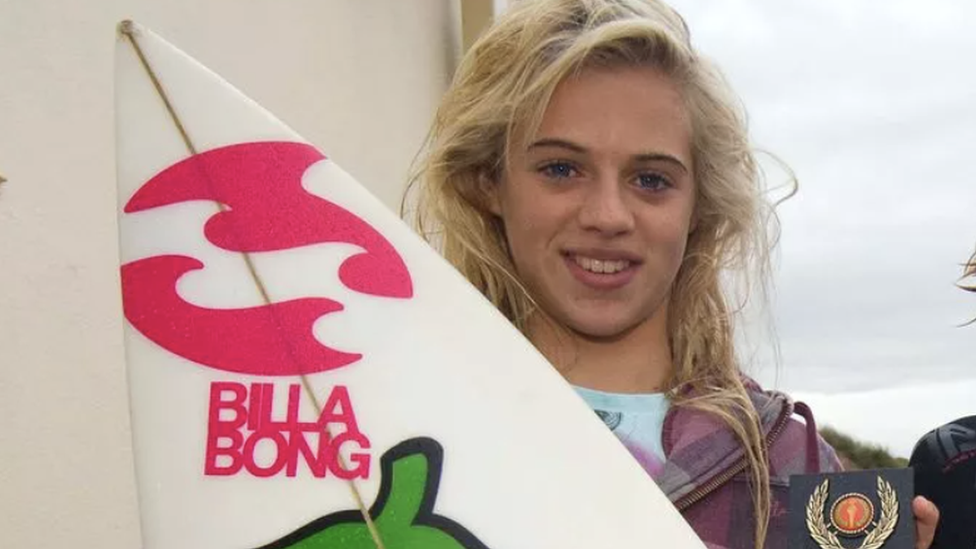
The world beckons for the young surfer
With big-name sponsorships and a string of surfing titles under her feet, the world was her oyster.
"I was whisked away and travelled to places that I could have kind of only dreamed of as a grommet [young surfer]," she said.
"I moved then to France when I was 15, to really just push in the European zone and after that Australia to work with a surfing brand
"Sport was definitely my superpower.
"Being from the UK, having this dream to be a professional surfer was kind of frowned upon as just a bit of an unattainable goal, but that definitely didn't stop me.
"In fact, I think it kind of just gave me more fuel to the fire to prove to people that I could do this.
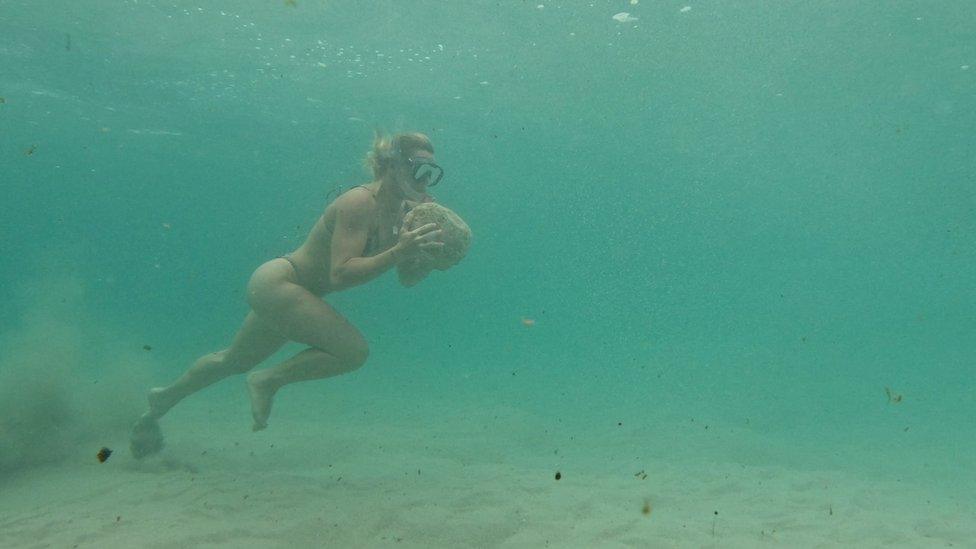
Pushing the limits underwater with training to hold her breath at Nazare
But at the age of just 21 she quit her sponsors and retired.
"It was purely down to the fact that I had put so much value into my image rather than the value I had as an athlete, and I think that really hit home," she said.
"For a long time I wasn't honest with who Laura actually was because from the age of 12 it had been hammered out of me, and just been told that my value was how I looked in a bikini.
"I needed a break. My mental health really struggled and I struggled with an eating disorder."
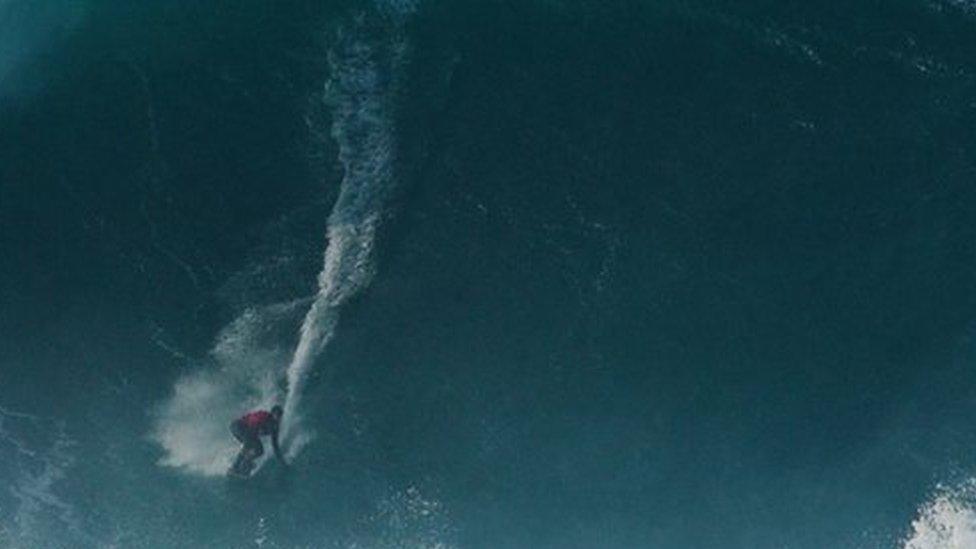
Into the abyss on a huge wave at Nazare
In 2018 she joined the guests on ITV's Love Island reality TV show.
"I did feel I felt very lost in that time, I think," she said.
"If anything, it made me lose even more of who I was, but in the long run it made me find who I was probably quicker than I would have, had I not gone in there."
As well as continuing problems with an eating disorder, in the summer of 2019 she was admitted to hospital with sepsis, external, also known as septicaemia or blood poisoning.
"It was absolutely terrifying, I think it was a real cry by my body telling me you're in the wrong place," she said.
"I was living in London, I was trying to kind of pursue this TV career and my body just said, 'No, this is not our place to be'.
"I think it inspired the discovery of who Laura really was, and I then decided that I wanted to get therapy for the eating disorder, and for the next, probably three or four years. I really just focused on me."
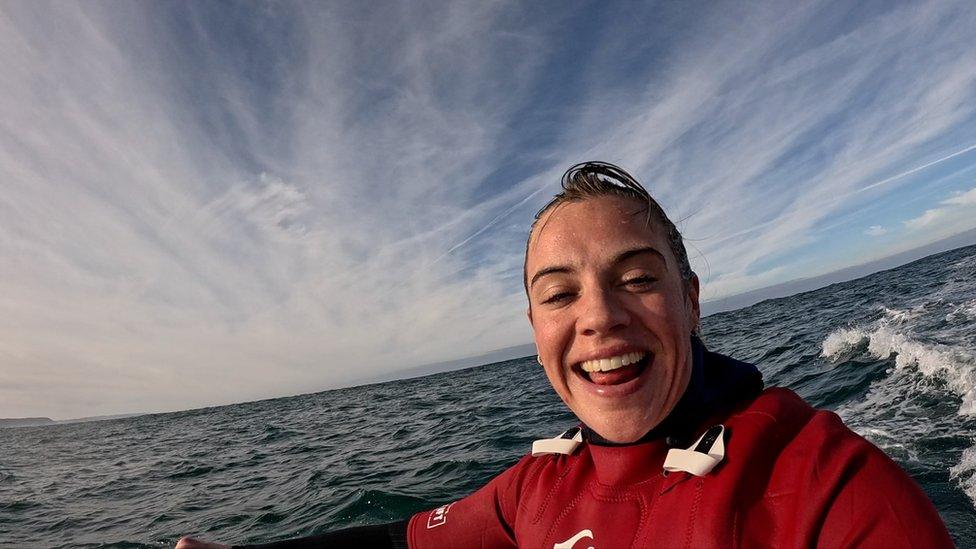
The reaction after conquering Nazare's peaks
She then returned to surfing in Croyde.
"It's always been a safe place of mine to be able to go into the water and to allow my board catch a few waves," she said.
Then she and her brother took on the Cribbar, one of Cornwall's most intimidating big waves.
"I've always been somebody that kind of just throws caution into the wind and just goes for it anyway.
"So in that moment I really felt that I was living into my values.
"I found the Laura she was always meant to be."
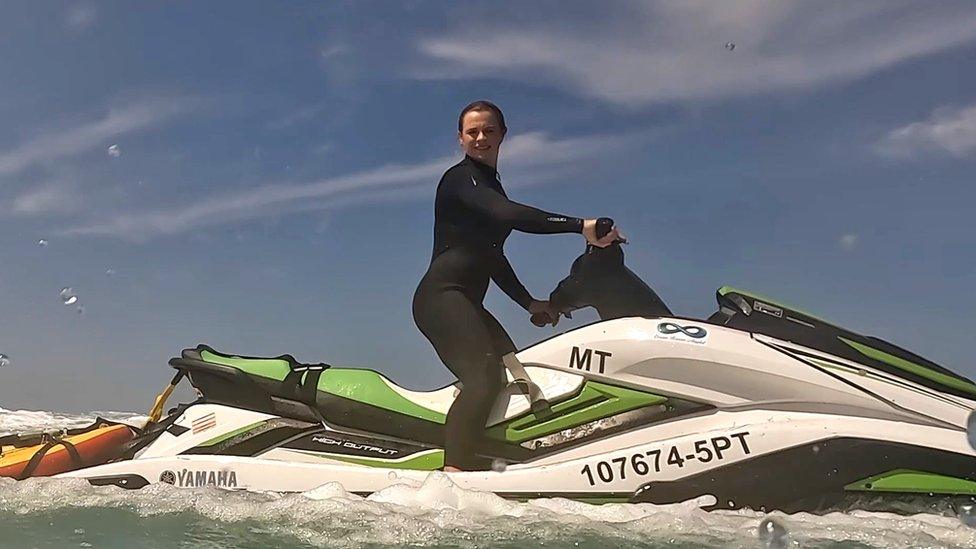
Taking the helm at Nazare
After pictures from the session went viral she got a call from big wave surfing legend Eric Rebiere to learn to take on the challenge of Nazare, where waves the height of 10-storey buildings roll in.
"And I was like, okay, like, if this guy really believes in me for the first time ever a male in this industry believes in my physical power like this is awesome," she said.
"I'm gonna just jump in headfirst and just go for it."
Her first lesson was in tow surfing, a practice used in big wave surfing in which a surfer is towed into waves by a personal watercraft.
"It sucked me in straight away, I absolutely loved it," she said.

Surfing is her safe place
What followed was weeks of training to condition her body to withstand the demands of surfing Nazare, including wiping out on huge waves that hit 60ft (18.3m).
"I felt a lot of pressure myself and what I wanted to achieve by surfing these waves, but also I felt pressure for just women's sport in general and to inspire others.
"There is one thing that matters, and it is just not to doubt yourself. As soon as you start to doubt yourself it's all over."
'Have enough fight'
She said: "To be the first British female to surf there was a really nice feeling, and I hope that it inspires other young female British athletes in their sports, too."
She said she wanted to "inspire people to be stronger than they think they can be".
"I've doubted myself a lot in the years, and whether that's through society telling me that I couldn't do these things or not.
"Wherever your 60ft wave is, you can get it if you don't turn your back on it and you don't allow somebody else to tell you that you can't achieve it.
"You've just got to have enough fight in you to keep going."

Listen to an interview with Laura Crane on BBC Sounds. Follow BBC Devon on X (formerly Twitter), external, Facebook, external and Instagram, external. Send your story ideas to spotlight@bbc.co.uk, external.
- Published2 April 2024
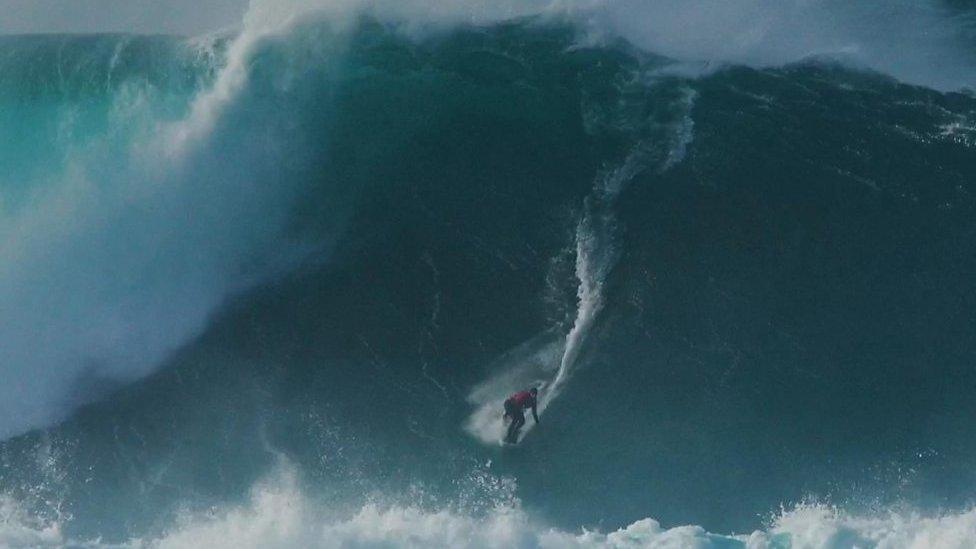
- Published23 December 2023

- Attribution
- Published28 March 2023
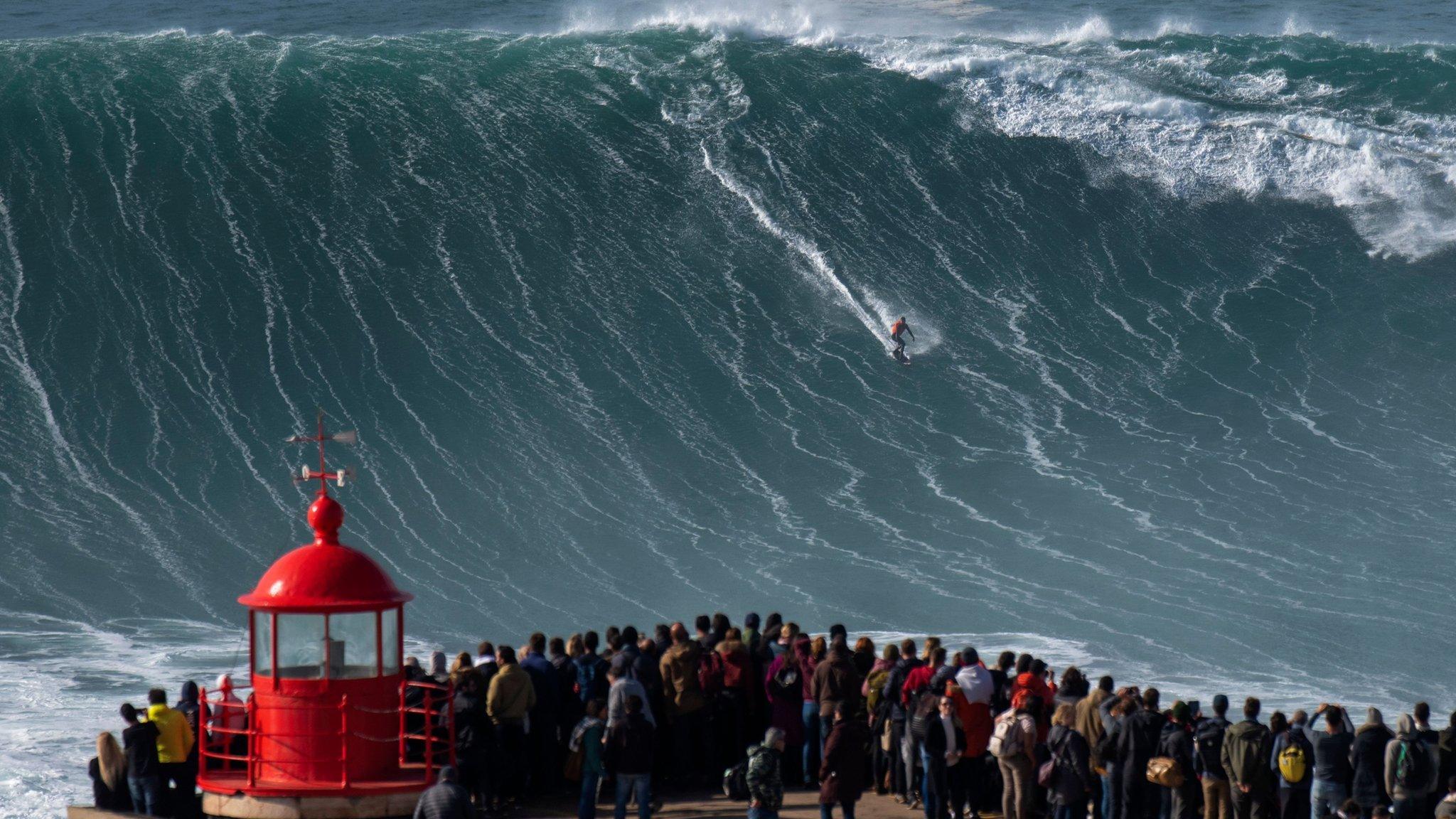
- Published20 May 2022
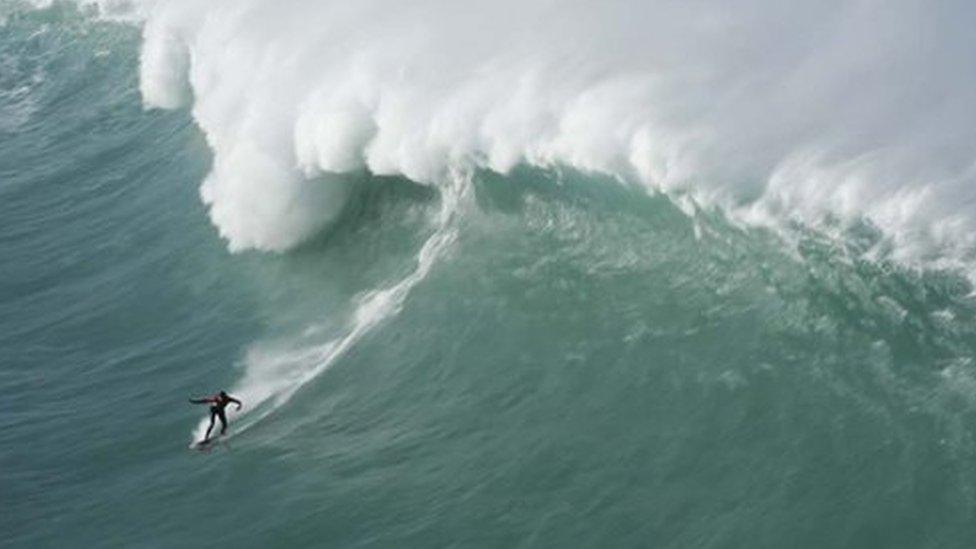
- Published29 April 2021
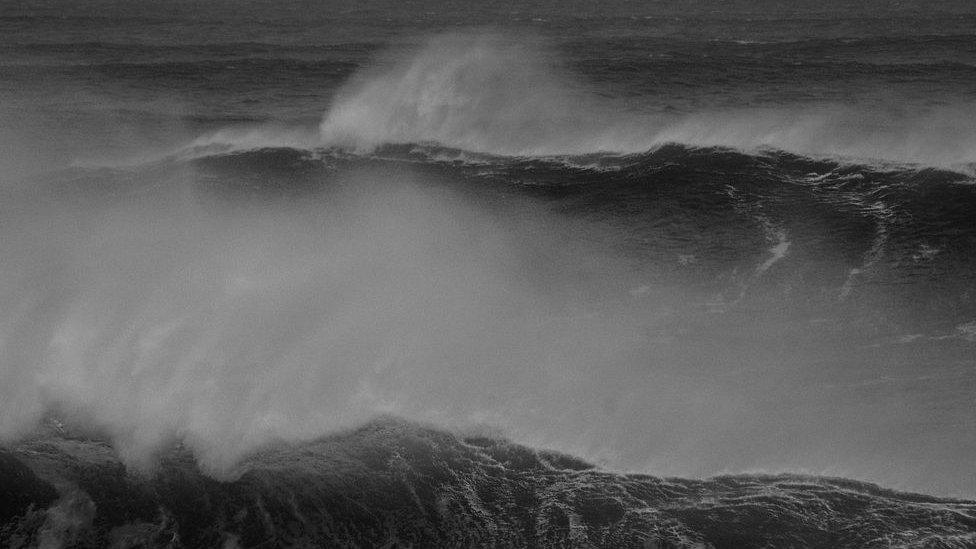
- Attribution
- Published13 June 2018
